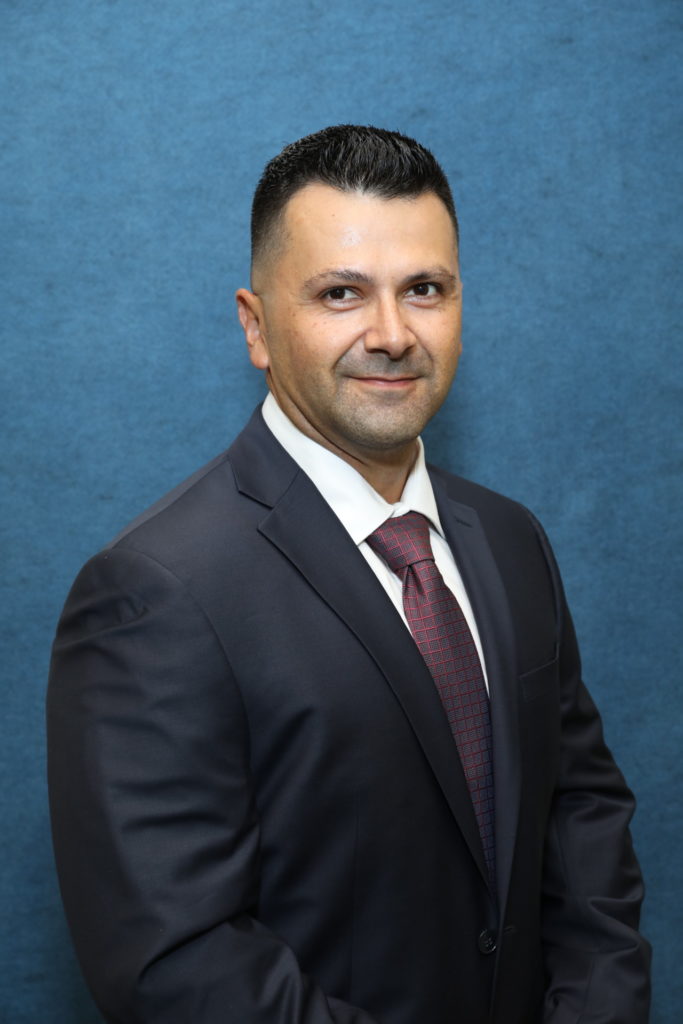AgriLife Extension turfgrass specialist to expand Hispanic outreach
Texas green industry workers to have more access to Spanish training
Manuel Chavarria, Ph.D., hopes he can do something as a new Texas A&M AgriLife Extension Service turfgrass specialist that hasn’t been done in Texas – training the large population of workers in the green industry who are primarily from the Hispanic community.

“When I started my doctorate at Texas A&M University, I realized I was the first Latin person to study for a doctorate in turfgrass here,” Chavarria said. “Now I consider myself a leader … there are only a few Latin faculty in the U.S. in this industry. I want to break down any perceived boundaries in a good way to boost the program and bring more people to it. I can now cover 100% of the people because I can present to both English and Spanish-speaking people.”
Chavarria rejoined the Texas A&M Department of Soil and Crop Sciences in August as an assistant professor. Five years ago, he worked as a postdoctoral research associate in turfgrass management and physiology for a year at Texas A&M before taking positions in turfgrass management in Canada and Florida.
He said Texas A&M gave him a unique training he didn’t have in Mexico when he sought out higher education opportunities. Now he wants to provide that same kind of unique outreach to the turfgrass labor force in Texas.
“I was raised under a Mexican-Spanish mixed culture in my house. We loved watching soccer games on weekends, and I always loved to see the fields. After finishing my bachelor’s degree in Mexico, I wanted to get involved with sports fields, but Mexico didn’t offer such a degree. So, I researched the profession and degree programs and found Texas A&M.”
He earned his bachelor’s degree in natural resources and master’s degree in forestry and rangelands, both from the University of Chapingo, Mexico, before earning his doctorate in molecular and environmental plant sciences, studying turfgrass stress physiology at Texas A&M.
Breaking down the barriers, expanding the outreach
Chavarria said while he likes to work on the sports fields, even expanding to understand more sports fields like golf and baseball, he understands there is so much more he can do within and for the industry.
“While getting my doctorate, I learned there is more to the turfgrass industry than sports fields,” he said. “I learned about landscaping and the homeowner aspects in the turf industry; turfgrass is everywhere and has monumental benefits. Also, it’s a huge business in the U.S.”
As a physiologist, his research is focused on abiotic stresses. A major issue now is water conservation, so he is helping evaluate new turf varieties that can tolerate recycled or salty water.
And while he plans to continue to do research, “my main goal is to reach more people.” As a bilingual speaker, Chavarria said he wants his niche to be reaching out to Spanish speakers in the industry.
He said Texas statistics show as much as 48% of the population are Spanish-speaking and represent a large part of the workforce in the green industry.
In the green industry, the owners and managers are typically English speakers, but the workers are Hispanic.
“They are the ones doing the fieldwork and need the training,” he said. “They don’t have access to the training and information because there is a language barrier. I want to be able to translate the information into both English and Spanish to cover more people in the state of Texas.”
Chavarria said the workers are not the ones who typically come to Texas A&M to take the courses offered or attend the field days, so he will concentrate on reaching out to them and providing education in both English and Spanish.
He said he plans to travel throughout the state to present more seminars and workshops in both languages, whether to Master Gardner groups or at county field days. He can be reached at [email protected] for scheduling.


